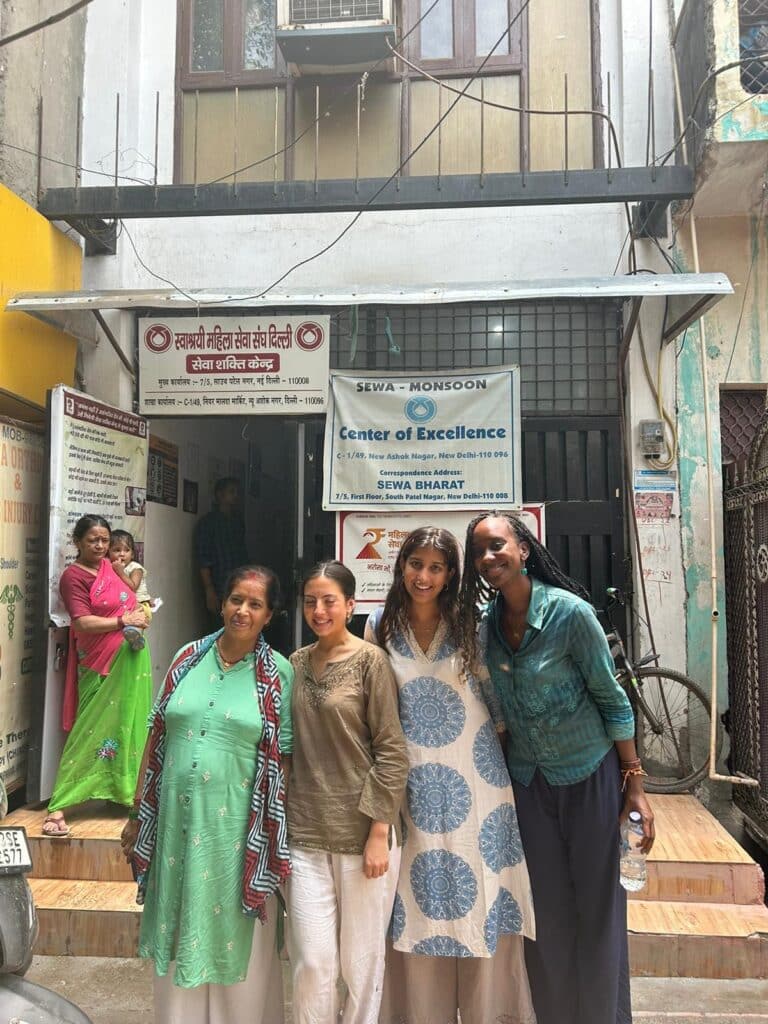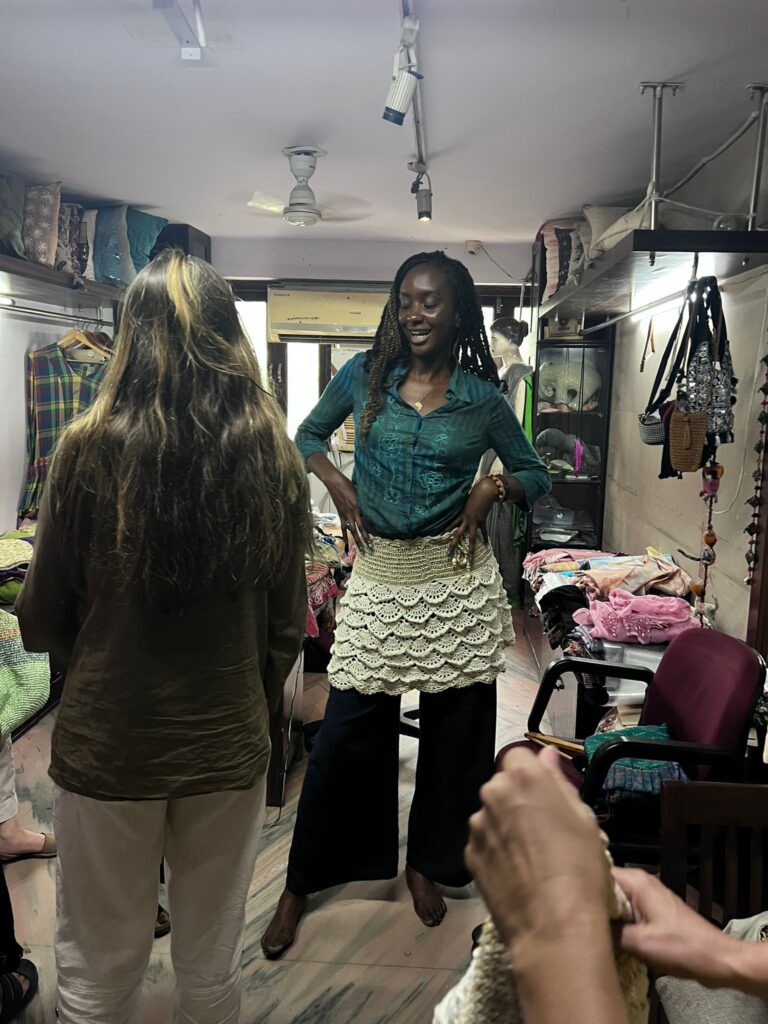This summer I have been interning at SEWA Bharat in New Delhi, India. SEWA Bharat is a non-profit organisation that focuses on advocating and empowering women who are engaging in informal work, it started in 1972 and SEWA works in 18 states in India. Their support ranges from empowerment meetings called Mohalla meetings where workers are informed about dangers of informal employment, such as exploitative middlemen, and community centres called SSKs where women can gain information about their rights and liberties.
Within my internship, my primary task has been researching and understanding the role of female internal migrants that are migrating to large cities, such as Delhi, for employment opportunities. These workers often work in the informal sectors as domestic workers, garbage separators and store merchants, to give a few examples. During my time, I have had the opportunity to assist with primary research through scheduled visits with SEWA members. These visits were often located at informal settlements with migrant workers where I was able to listen, note and understand the various challenges they faced and its relevance to policy in India.
Using this research, I was able to construct a policy structure for India’s first migration policy that emphasises the need for portability in the Indian government’s schemes to register migrant workers through identity cards. India has had several failed attempts of documenting migrants through e-shrams, UIDIA cards or Aadhar cards which has resulted in migrants being ineligible for ration and benefit payments from India’s public distribution system (PDS) and not being able to perform their civic duties such as voting and accessing banking. Leaving many migrants in a cycle of poverty. I was able to understand how internal migration operates and what is considered a safe and unsafe route.
During my time at SEWA, I was able to attend a migration workshop in which there was a focus on transparency in migration models in how it can help to limit human trafficking within India. As well as that, a reminder of how advocacy should look like within a grassroots organisation was given in this workshop, with a clear emphasis on empowerment and advocacy despite the different nature that the organisation operates. SEWA is a union and the needs of the women that need SEWA should be at the forefront. Through exposure with the many aspects of migration for poor and low caste women in India, I was able to identify a point of interest which was the triple burden that is navigating being a female migrant mother in very inhospitable conditions. I was shocked to find out that many women did not view themselves as workers and merely performing their duty as a wife in supporting their husbands. Moreover, this is a point of interest for me as my dissertation is focusing on the female immigrant perceptive within the diaspora. Having the context of what the female immigrant experience looks like in India, will be a useful foundation for my dissertation work.
Working closely with a colleague that was working on a research paper regarding focusing the lack of available and accessible childcare for Nepali female migrants in Delhi, I also learned much migration theory. For example, the necessity to challenge the view that Female migrants only engage in associate migration through marriage but often migrate for work with children, which often severely disrupts children’s education. We should also focus on the rights and the experience of children, such as how migrant children leave school before the legal age, mandated by the Indian state. Aside from my migration focused work, I have also had the opportunity to assist with grant applications and presentations for funding for female led water conservation schemes in Uttarakhand and to advocate for the rights of female forest workers in Khandwa, Madhya Pradesh.
During my time in Delhi, I was living in a home with 6 other Cambridge students that were placed in different internship positions across Delhi. I was able to develop my independence tremendously more that I had expected, as I oversaw my finances, care and safety in a country that I had never been to before and was foreign to me. As someone who is interested in international development, this internship adventure was a great opportunity for me to understand what travelling and living away from home would be like. I was able to adjust to my environment and face any challenges that I had. I was able to experience so much in India! From travelling to Agra where I was able to see and enter one of the seven wonders of the world – the Taj Mahal, as well as visit the Agra fort. I was able to immerse myself in nature when travelling to Rishikesh and seeing some of the most beautiful waterfalls that India had to offer. In Delhi, I saw so much and learnt so much. I was particularly impressed by much of the Mughal architecture and learning about the Islamic history of Delhi – I especially enjoyed going to a Sufi Kavalli night and visiting the Jama Masjid. I am eternally thankful for LEAP for supporting me on this adventure that has genuinely changed my life.





